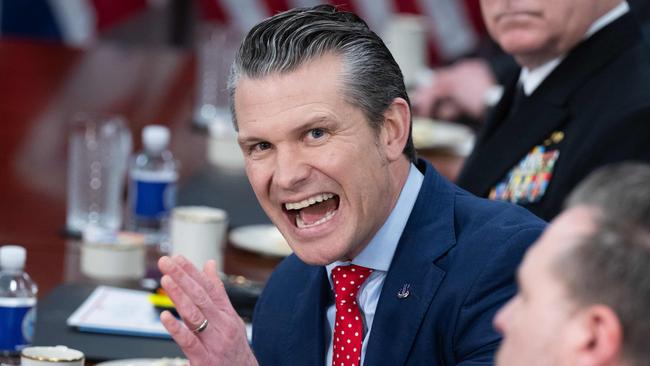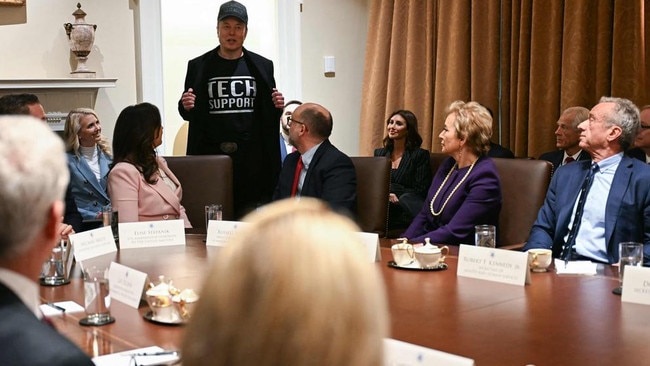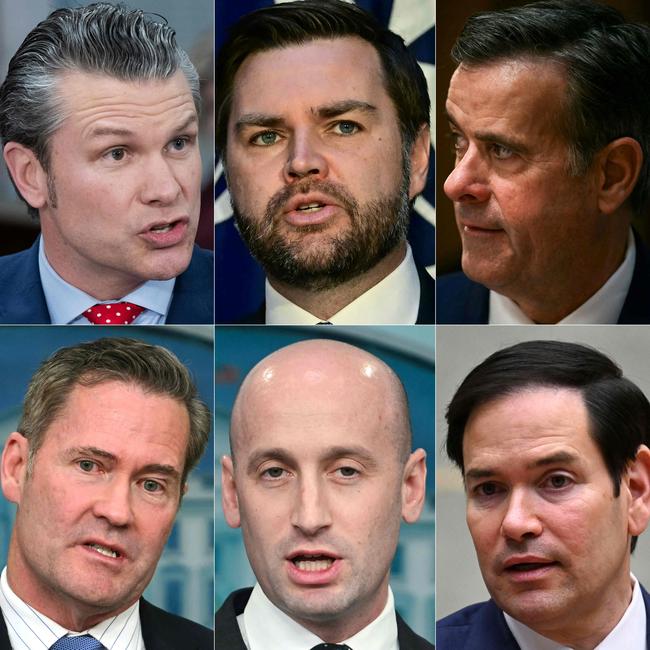
But he had limited executive experience, no background in senior government or private sector roles, and the short managerial record he did have as the head of two veterans’ advocacy groups ended badly when he was forced out for mismanagement and personal misconduct.
All that – along with some sordid allegations about his private life, much of which revolved around a drinking habit the thrice-married Hegseth says he has put behind him – led some Republicans to wonder whether he might simply not be equipped to handle one of the most important US national security jobs and responsibility for the nearly three million men and women in and out of uniform in the American military complex.

As doubts mounted and prospects for Hegseth’s confirmation dimmed, wavering senators were left in little doubt that a vote against Trump’s nominees (there were doubts too about Bashar al-Assad-friendly Tulsi Gabbard as director of national intelligence and vaccine-denier Robert F Kennedy as secretary of health and human services, among others) would leave them vulnerable to a Republican primary challenge, funded by Elon Musk, in their next Senate election. “That may happen,” said the Alaska senator Lisa Murkowski, who voted against Hegseth, earlier this month.
The defections appear to have been carefully choreographed so those defying Musk and Trump never got above three, allowing all the nominations to go through the upper chamber, where Republicans hold a 53-47 majority. This was simply the latest and most vivid demonstration of the power of tribal partisanship in modern politics: rigid party loyalty, enforced by the threat of withdrawal of patronage, a hostile media campaign and the intervention of limitless financial resources.

We got a surprisingly quick lesson in the price of such tribalism this week when we learnt that, less than two months into the job, Hegseth had shared US military planning for an imminent attack on Houthi rebels in Yemen earlier this month with a notoriously hostile journalist.
The world now knows that the Houthi PC (Principals’ Committee) Small Group assembled on Signal, an encrypted messaging app, was used as the co-ordinating platform for national security planning, because someone had inexplicably included Jeffrey Goldberg, the editor of The Atlantic – a fiercely Trump-critical publication – in its membership.
It seems someone in the office of Mike Waltz, the national security adviser, was responsible for the security failure. But what’s clear is that more than a dozen of America’s top officials participated in a discussion of highly sensitive matters on a mobile app. One of them, Steven Witkoff, the real estate lawyer-turned-Trump envoy to everywhere, even seemed to acknowledge that he was accessing the conversation on his personal phone.

Using the app, a secure but by no means invulnerable means of communication, sharing on it information about an upcoming military action and inadvertently having someone unauthorised – a journalist at that – included in the conversion represents an astonishing level of recklessness, negligence and incompetence, especially by Hegseth, the man on whose actions the very lives of US servicemen and women depend daily.
This is the cost of tribalism: when you place loyalty to party, to leader, above all other considerations – for jobs, policy positions and execution – you will inevitably degrade the quality of the outcome.
Tribalism eradicates accountability. If all that matters is that you say and do the right things by your party and its boss, you can literally get away with anything. It is now the dominant organising principle of American politics as well as the media. It causes senators to forsake their roles as part of a co-equal branch of government. It causes members of Congress to abandon their responsibility to scrutinise the actions of an executive branch controlled by their party. It causes the media to forgo their role as public watchdogs and become instead cheerleaders for the side they choose.

The same tribalism led political and media loyalists of Joe Biden to engage in a four-year act of political deceit, the pretence that the former president was mentally capable of doing the job even as they saw he was increasingly senile, with disastrous consequences for US security, economic policy and domestic stability. The wages of tribalism are incompetence, decay and, ultimately, failure.
I think it is no accident that the escalating partisanship and blind loyalty in American politics in the past 20 years has coincided with a sharp decline in the quality of political leadership and collapsing trust in institutions. The willingness to defend absolutely anything your party does, the belief – deep-rooted on both sides – that opposition to you cannot be principled but is only ever an act of bad faith, motivated by pure animus and opportunism, has dangerously eroded the quality of decision-making and execution. Successive presidencies have failed in a trail of massive blunders that have become routine at home and abroad.
Representative democracies cannot function without rigid party discipline – “Damn your principles. Stick to your party!” said Benjamin Disraeli a century and a half ago.
But neither can they work when demand for discipline overrides all other objectives in public affairs, when loyalty reigns supreme above competence, integrity, decency and truth.
The Times








When the nomination of Pete Hegseth as Donald Trump’s defence secretary was being considered by the US Senate, a number of Republican senators expressed deep reservations. A handsome decorated former soldier, Princeton and Harvard-educated, Hegseth is an articulate and passionate advocate of Trump’s world view, a role he perfected over several years as a leading figure on Fox News.